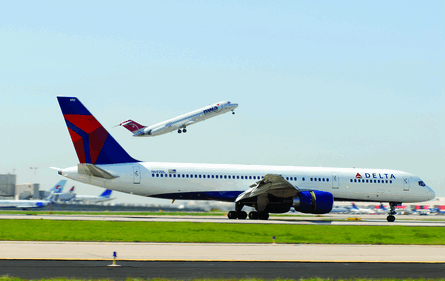A potential United-US Airways combination could face more opposition than the proposed Delta-Northwest tie-up
As the bid by Delta Air Lines to take over Northwest begins its long journey through legislative hearings, members of the House and Senate are as concerned about mergers that have yet to be announced as they are about the combination at hand.
Delta and Northwest are selling their proposed combination as a non-overlapping one that will cost no jobs and will not reduce service, and much opposition has centred on possible or likely mergers undertaken in response.
 |
|---|
The chief executives of Delta and Northwest, Richard Anderson and Doug Steenland, have testified before House and Senate committees and have promised to keep open all seven of their hubs and to protect all front-line workers from furloughs. They have also promised few if any changes in service patterns to legislators across the country.
Anderson, for instance, has vowed to keep flights at airports in New York, winning the tentative approval of New York Democratic Senator Charles Schumer, who responded: "I don't usually approve of mergers, but this one so far seems alright." Steenland has promised farm state and Midwestern legislators the carrier would make few changes, winning the approval of Senate Judiciary Chairman Herb Kohl, a Wisconsin Democrat who was mollified by assurances that Northwest would not do anything with its stake in Midwest Airlines.
But concern is with other deals, including a possible linkup or merger between United and US Airways. While neither carrier would comment on the possible combination, it is widely believed that negotiations are advanced.
And other deals may well be in the offing, leading Bert Foer, the president of the American Antitrust Institute, to tell a House subcommittee that: "A merger of this magnitude will in all probability lead to at least one more merger of similar size. It is imperative to look at the forest and not merely the trees, by which I mean to say the Department of Justice must not only apply the standard antitrust analysis ... but also must pay attention to systems competition."
United turned to US Airways after Continental decided to remain independent. Pilots at both United and US Airways have bridled against a merger. Steve Wallach, the head of United's pilots union, says: "US Airways' pilot integration problems have created a toxic stew, as any carrier that seeks to merge with it will quickly discover, and one which in the current environment could imperil a United/US Airways combined enterprise."
Source: Airline Business























